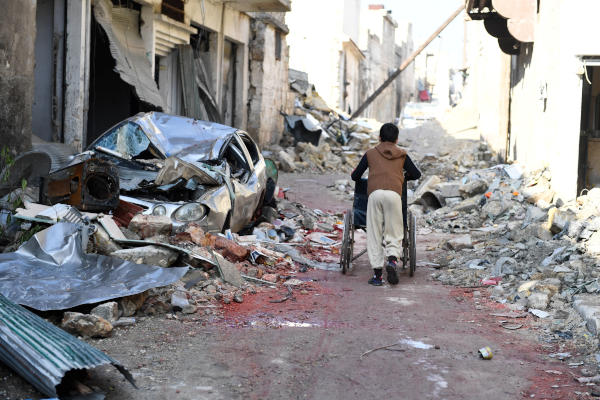There has been quick and intense diplomatic activity concerning a solution for Syria since the fall of Aleppo. Several agreements have been signed and the political process has been divided into three stages. The location and dates for the negotiations have also been decided; they will take place on the 23rd of January in the city of Astana in order to negotiate consolidating the truce in Aleppo and a ceasefire across Syria. On the 27th of February, they will meet in Geneva to hold negotiations for a peaceful solution.
The Iranians, Turks and Russians have agreed to act as guarantors of the ceasefire. The Iranians have refused to include Saudi Arabia in the Astana negotiations, according to a statement made by the Iranian Defence Minister. Meanwhile, the Russians regarded the participation of the Saudis as essential, but they did not clarify to which stage of the roadmap.
The conference that will take place in Astana, the Kazakhstani capital does not have international consensus or legitimacy! International parties that are interested in the Syrian crisis such as Germany and France have doubts about it, and the role of the United Nations seems to be limited. The Iranians, Turks and Russians have decided to meet in Astana and bring fighters from the Assad regime and the Syrian armed opposition to the table of preliminary arrangements in this city which is considered to be associated with the Russians.
The organisers say that they will hand over the file to the United Nations so that a political solution can be negotiated in Geneva five weeks after the conference. Is the function of the Astana conference to force Turkey and the Syrian opposition forces to surrender, like Saddam did when he signed a document admitting defeat in a tent in Safwan after the Kuwait war? Or does the Astana conference aim to decide on the arrangements for a truce and a primary reconciliation that precedes negotiations? The matter is quite suspicious.
Preventing others from participating in or even attending the Astana conference increases these suspicions. Turkey is in a weak position and may not be able to, on its own, confront the Russians, Iranians and the Assad regime when the arrangements for the truce are imposed. It will be difficult for Turkey to be the guarantor of Syrian armed factions with different orientations.
This may explain why Russia and Iran want Turkey to attend Astana on its own. Turkey’s sole condition was that the People’s Protection Units (YPG), a Syrian Kurdish militia that enjoys the west’s backing, would not be allowed to attend. This is because Turkey believes that this group wants to establish a Kurdish zone in Syria, near Turkey’s borders. The three countries also agreed on excluding ISIS and Al-Nusra Front from the conference. Other factions were not invited but neither were there announcements about them being excluded. They have been ignored for the meantime.
The Astana conference aims to consolidate a ceasefire across Syria. The Syrian regime is interested in this right now because it wants to redeploy its forces and is trying to administratively control the country which it lost control of during the last five years of war. The ceasefire does not serve the opposition in any way because most passages are now closed and are targeted individually by the Syrian regime’s alliance which is supported by Iranian and Russian forces, Hezbollah militias and other sectarian Shiite militias that are under the command of the Iranian revolutionary guards.
It seems that the goal of the Russians and Iranians is to drag the armed Syrian opposition to a slow negotiating project while enjoying the freedom to move and breach the ceasefire in areas of their choice in order to put pressure on armed groups and force them to accept their conditions.
The Assad regime’s alliance is rearranging its position on the ground, and Russian troops have been assigned with the task of having a presence in areas close to Turkey, including Aleppo. Iran and its militias are stationed in Daraa, near the Jordanian border, in areas on the border with Iraq and in the surroundings of the Syrian capital, Damascus.
There are about 20 days left till the Astana negotiations. They are important because they will clarify further the Russian role and reveal whether it still conforms with the Iranian one or leans towards a moderate political one in order to achieve a solution that is acceptable to all. The conference will also reveal Turkey’s position after it changed its recent stances and show whether it has decided to end its relationship with the Syrian revolution and acknowledge the Assad regime or if it is leading the Syrian operation alongside the majority of the Syrian people.
